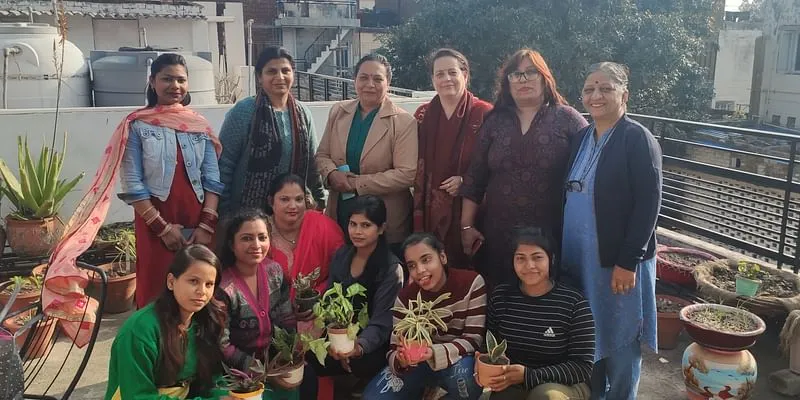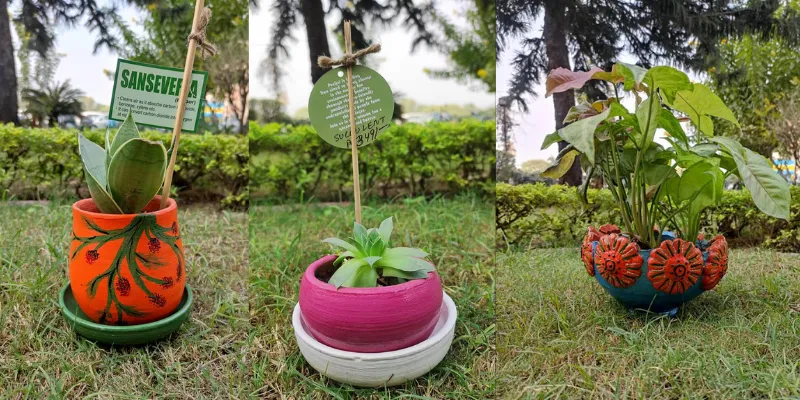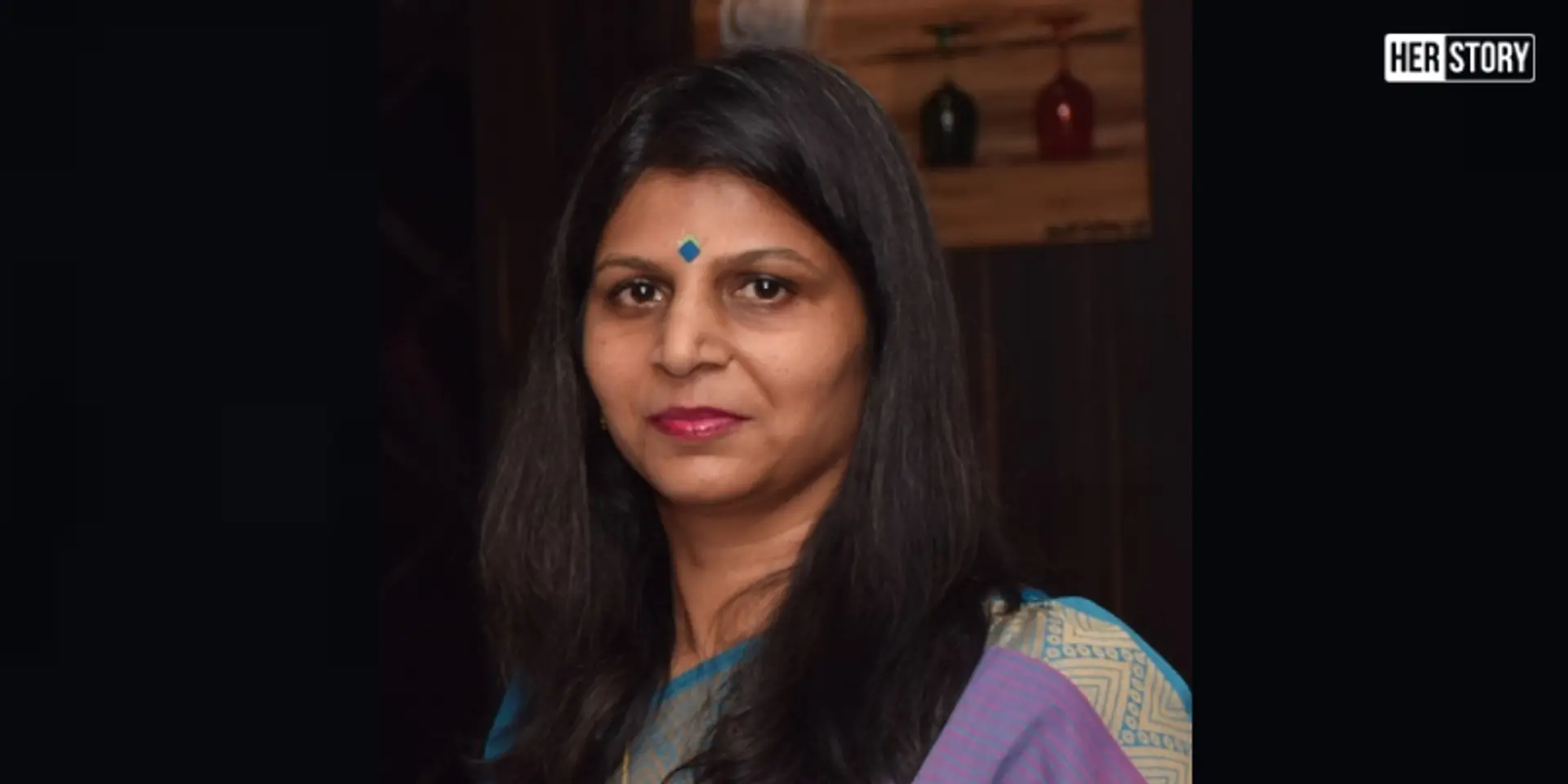This entrepreneur and her tribe of women are tackling the sick building syndrome
Founded in 2017 by Ekta Bansal, Parijai Genus is a small business that promotes greenery at offices and residential spaces while fulfilling its twin goals of employing the women and conserving the environment.
Ekta Bansal and her family had one guava and lemon tree in the backyard of their home in Bhatinda. As a 10-year-old, her day would start with looking for ripe fruits to pluck before heading to school. She would later toil with the gardeners growing vegetables and ornamental plants and also designing clay pots.
Little did she know that the budding interest in plants and gardening would make her an entrepreneur four decades later. Based in Chandigarh, Ekta now strives to achieve the twin goal of promoting greenery and women empowerment through her venture, Parijai Genus.

Ekta Bansal designing a kitchen garden using waste baskets and containers with women in Chandigarh.
Going green with women
According to Ekta, critical issues like women empowerment, environment conservation, and climate change are interconnected and countries like China and Bangladesh are truly harnessing the power of a women workforce.
Ekta’s resolve to include women in her enterprise strengthened when she learnt that women make up 49 percent of the country’s population and most of them reside in rural areas.
“When I decided to start up in 2017, it was also for the women who are talented but aren't able to work. I thought if we created a platform that can enable us to work remotely, women can juggle work and household responsibilities,” she says.
With over 200 women contributing remotely, Parijai Genus specialises in offering vertical and terrace gardening services, customised green gifting, and also sells potted plants and miniature gardens.
Apart from adding aesthetic value, Ekta believes vertical gardens can help tackle the Sick Building Syndrome. Coined by the World Health Organisation in 1986, the term refers to symptoms like fatigue, headache and dizziness, general lack of concentration, and others caused by spending time in certain buildings.
Ekta believes turning concrete walls and empty terraces into gardens is a viable solution to grow vegetables and medicinal plants, depending on favourable conditions for its growth.
“Our work is not done with just planting and setting up vertical and terrace gardens; we help with maintenance as well. Because the saying, Jab ek paudha marta hain, toh humara andhar bhi kuch mar jata hai (When a plant dies, something dies inside us.)” she says. It also offers customised handmade clay pots plants at a starting price of Rs 150. They are sold through exhibitions and plant corners at bakeries and other stores.
Through its online presence, Parijai Genus has catered to clients like FICO and Uniparts in Ludhiana, Alchemist hospital in Panchkula, Aids Control Society in Chandigarh, among others.
Bootstrapped with an investment of Rs 50 lakh so far, the entrepreneur hopes to break even in the next few months.

Potted plants by Parijai Genus
Challenges and the way forward
Parijai Genus also conducts workshops for clusters of women in Chandigarh, Punjab, and Haryana to improve their skills in stitching, knitting, painting, embroidery, and stonework. However, the women were less than enthusiastic about the idea as they had been discouraged to pursue these traditional skills due to lack of pay for work.
At the same time, it took some time for Ekta to convince the women that they have the potential to earn and provide for the family financially as well. “First finding the talent and then making them realise they are talented and skilled was a major challenge,” she adds.
Ekta who holds a master's in computer applications, had sprung into entrepreneurship, purely out of passion after several years of taking a break to raise her children. She says the lack of a network has been a challenge and that the last four years has been a lesson in forging strong connections.
At present, the entrepreneur is focussed on her goal of employing at least 2,000 women in the next two years and over twp lakh women by 2025. Now working actively with 200 women from a database of 1,500 women sourced through direct contacts and NGOs, Ekta is looking for a structured way to engage with these women.
Edited by Rekha Balakrishnan









